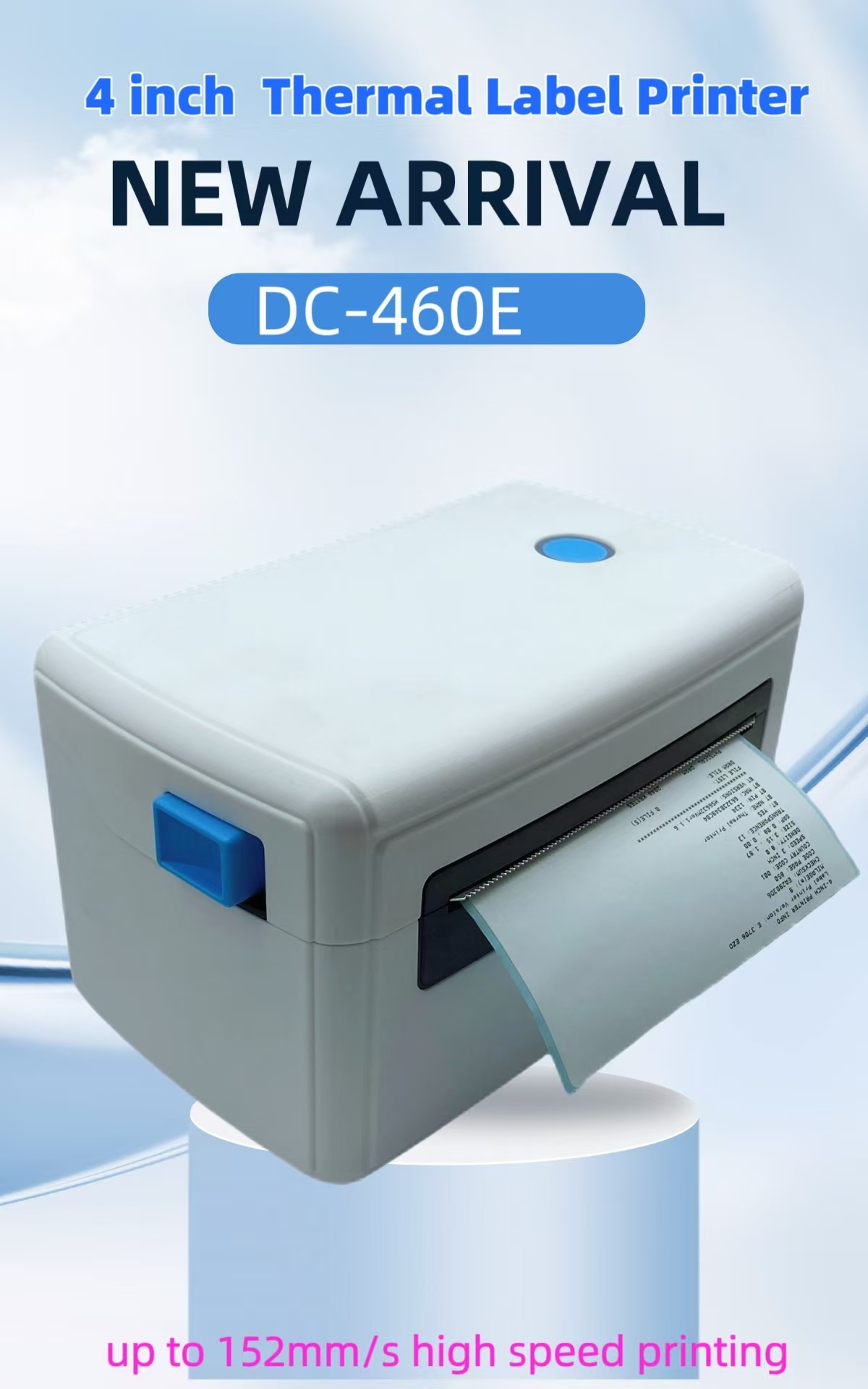Unlocking Efficiency: The Essential Guide to Industrial Barcode Printers
Release time:
Jun 28,2025
Source:
Introduction
Industrial barcode printers are a crucial component in the realm of consumer electronics and office equipment, particularly when it comes to labeling and tracking products efficiently. These printers are specifically designed to handle high-volume printing tasks, making them ideal for environments that require durability and reliability.

One of the primary advantages of industrial barcode printers is their ability to produce high-quality, scannable barcodes on various materials. This capability is essential for inventory management, shipping, and product identification. By utilizing advanced printing technologies, such as thermal transfer and direct thermal printing, industrial barcode printers ensure that the barcodes remain legible and durable, even in challenging conditions or over extended periods.
In addition to their printing capabilities, industrial barcode printers often come equipped with advanced software and connectivity options. This allows for seamless integration with existing inventory management systems and enhances workflow efficiency. Many models offer features such as auto-cutter, label peeler, and RFID encoding, which further streamline the labeling process and reduce the need for manual handling.
When considering an industrial barcode printer, it's important to evaluate various factors to ensure it meets the specific needs of your business. Print speed, resolution, and media handling capabilities are among the key specifications to assess. High-speed printing can significantly reduce bottlenecks in operations, while higher resolution ensures the printed barcodes are easily readable by scanners.
Furthermore, selecting the right media type and size is crucial for optimal performance. Industrial barcode printers can accommodate a wide range of label materials, including paper, synthetic, and specialty materials. It's advisable to collaborate with your supplier to choose the most suitable media that aligns with your printing requirements.
Maintenance is another critical aspect to consider when investing in an industrial barcode printer. Regular maintenance practices, such as cleaning print heads and updating firmware, can prolong the life of the printer and ensure consistent print quality. Many manufacturers provide detailed guidelines and support resources to assist users in maintaining their equipment effectively.
In conclusion, industrial barcode printers are indispensable tools for enhancing operational efficiency in the consumer electronics and office equipment sectors. By understanding their features, applications, and maintenance requirements, businesses can leverage these printers to optimize their labeling processes, improve inventory management, and ultimately drive productivity. Investing in the right industrial barcode printer can lead to significant long-term benefits, making it a strategic choice for any organization.
Featured Articles
Understanding Direct Thermal Label Printers: A Comprehensive Guide
Direct thermal label printers are an essential tool in today’s fast-paced business environment, particularly in sectors like retail, logistics, and manufacturing. Unlike traditional printers that require ink or toner, direct thermal printers utilize heat-sensitive paper to produce sharp, durable images. This technology offers several key benefits, making it a popular choice for various labeling ap
Exploring the Benefits of Direct Thermal Label Printers: A Comprehensive Guide
Exploring the Benefits of Direct Thermal Label Printers Table of Contents Introduction to Direct Thermal Label Printers What is Direct Thermal Printing? Advantages of Direct Thermal Label Printers Cost-Effectiveness of Direct Thermal Label Printing High-Quality Labels and Prints Ease of Use and Maintenance Environmental Advantages Applications of Direct T
Understanding the Benefits and Applications of Industrial Thermal Printers
Industrial thermal printers have revolutionized the way businesses manage their printing needs, especially in the consumer electronics sector. These printers utilize heat to transfer ink onto various substrates, making them distinct from traditional printing technologies. This method offers numerous advantages, including speed, efficiency, and high-quality output, which are essential for industrie
Exploring the Advantages of Industrial Thermal Printers in Supply Chain Management
Exploring the Advantages of Industrial Thermal Printers in Supply Chain Management Table of Contents 1. Introduction to Industrial Thermal Printers 2. What Are Industrial Thermal Printers? 3. Key Features of Industrial Thermal Printers 4. Benefits of Industrial Thermal Printers in Supply Chain Management 4.1 Increased Efficiency 4.2 Improved Accura
Exploring the Benefits and Applications of Industrial Thermal Printers
Industrial thermal printers are specialized devices designed to meet high-volume printing demands across various industries, particularly in consumer electronics and office equipment sectors. These printers utilize thermal printing technology, which involves using heat to transfer ink or dye onto a substrate, typically paper or labels. The result is high-quality prints produced quickly and efficie
Why an Industrial Thermal Printer is Essential for Your Business Operations
Why an Industrial Thermal Printer is Essential for Your Business Operations Table of Contents Introduction to Industrial Thermal Printers Benefits of Industrial Thermal Printers How Industrial Thermal Printers Work Key Features to Consider When Choosing an Industrial Thermal Printer Applications of Industrial Thermal Printers Cost-Effectiveness and Efficiency Maintenance and Durabil










